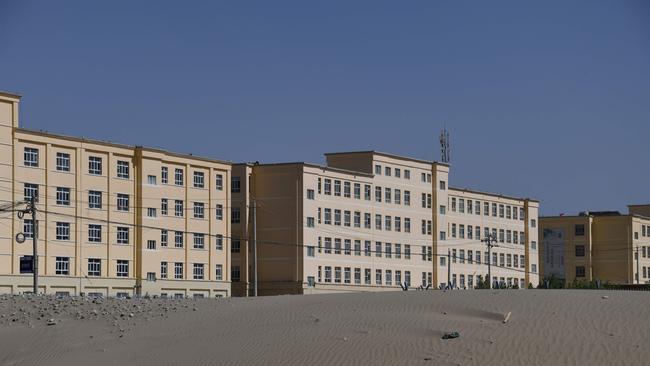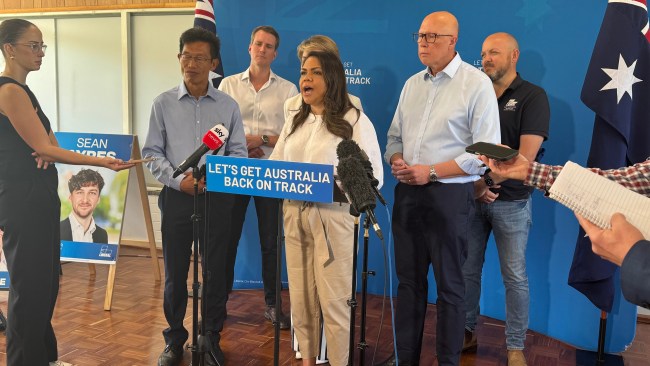China’s influence is a pox, report warns
A new report finds Beijing’s influence operations remain highly active in Australia: ‘They are still active. They are still growing.’

It was an example of the extraordinary naivety among parts of our political class about the Chinese Communist Party’s influence operations in Australia.
Joseph Szakacs, now the Police Minister in Premier Peter Malinauskas’s South Australian Labor government, took to Facebook to celebrate the members of the SA Xinjiang Association who had just won the “Best Costume Award” at Adelaide’s 2018 Australia Day Parade.
“I think well deserved, too!” Mr Szakacs posted, along with a picture of the former South Australian union leader kneeling among the group’s brightly dressed members.
Much of Adelaide’s Uighur community had a different opinion. For them, the sight of Australians of mostly Han-Chinese ethnicity dressing up in Uighur national dress was abhorrent. It looked like part of Beijing’s overseas United Front work, the same conclusion of a new report by Australian Strategic Policy Institute about the Communist Party’s influence operations in the Xinjiang diaspora.
James Leibold, an expert on Chinese ethnic politics at La Trobe University and one of the report’s authors, says it can be difficult for politicians to navigate the tangle of United Front-associated groups. “None of these groups is registered under the foreign transparency scheme,” Professor Leibold said.
“We need to work out why … What are the loopholes? How do we tighten them?”
Improving the operation of the foreign inference laws that were passed by the Turnbull government with bipartisan support is one of the recommendations by Mr Leibold and his co-author Lin Li. There is widespread evidence that more than a million Uighur and other minorities have been “re-educated” in detention camps in Xinjiang.
The new report documents the intensification of the CCP’s surveillance of the estimated more than 700,000 members of the Muslim Uighur community living outside of Xinjiang.
Hundreds of Uighurs in Egypt, the UAE, Thailand and beyond have been forcibly deported back to China after being nudged by Beijing’s diplomatic corps.
Costumes at Adelaide’s Australia Day is on the milder end of the CCP’s overseas techniques. But the researchers argue it is crucial all tiers of the Australian government better understand the operation of overseas community groups that purport to be independent civil society organs but have close ties to the CCP.
“All governments seek to assert their influence abroad … yet the (Chinese Communist Party) is different in the deceptive and coercive nature of its influence operations, which can undermine the sovereignty and interests of other countries and negatively affect the lives and liberties of diasporic community members in those countries,” the authors say.
They document SA Xinjiang Association’s links to Beijing, which were first published in The Australian in 2020.
A lack of concern about those links has been bipartisan. Liberal MLC Jing Lee, who served as assistant minister to ex-Liberal premier Steven Marshall, enraged SA’s Uighur community by championing the association.
The report argues further training is needed for Australian politicians of all tiers, so they can better identify Communist Party-linked organisations.




To join the conversation, please log in. Don't have an account? Register
Join the conversation, you are commenting as Logout